Sent: 21.03.12
Dear Mr Tregear,
My apologies for this second mailing to comment on your verdict on my complaint. The responses you have made, to the points that you are prepared to accept as within your jurisdiction, work to further obscure the "material facts" that I and millions of other dissidents believe should be honestly addressed.
If I had engaged fully with your verdict it would have been a very long document and as with my original complaint, only superficially engaged with.
The process is by its very nature adversarial and as the BBC interprets the rules it does so in its vested interest, not in the interest of the truth. There is limited opportunity to uncover the truth as there is limited opportunity for a genuine dialogue and exploration of the material issues. As in a British court room lawyers can argue around an issue and lead the discussion away from key points. This naturally is how this complaint is progressing. A court room allows for a far greater interaction between the opponents unlike the BBC complaints procedure.
Therefore I would be grateful at this stage if you might fully comment on one issue that I did not respond to yesterday.
Point 15. Firstly there are other air traffic controllers, who have vast experience like Scoggins, who have a very different view of events that day.
Yes, the radar was confusing as the were UNPRECEDENTED MILITARY & CIVIL EMERGENCY EXERCISES UNDERWAY on 911. Yet another remarkable coincident that happened that day?
However you do not accept that this fact is "materially relevant" to report to the audience as one reason that defence forces may have been delayed in their response. In part it would back up the argument about confusion but should lead to deeper enquiry, not to talking heads picked to make a statement backing the official conspiracy theory. An examination of, for example what was said by witnesses at the 911 Commission of Inquiry would lead to further questions, as to this day the statements by NORAD conflict with the FIA.
HOWEVER: the KEY issue is whether military radar should have been able to identify the off course planes as they normally are over the continental air space of the USA.
Can you please comment on the issue of Norman Mineta's public statements about the information available to Cheney in the War Room.
The radar was working according to Transport Secretary Norman Mineta ….
Mineta's testimony to the 9/11 Commission about his experience in the Presidential Emergency Operating Center with Vice President Cheney as American Airlines flight 77 approached the Pentagon, was not included in the 9/11 Commission Report.[4] In one colloquy testified by Mineta, he states that the vice president refers to orders concerning the plane approaching the Pentagon:
There was a young man who had come in and said to the vice president, 'The plane is 50 miles out. The plane is 30 miles out.' And when it got down to, 'The plane is 10 miles out,' the young man also said to the vice president, 'Do the orders still stand?' And the vice president turned and whipped his neck around and said, 'Of course the orders still stand. Have you heard anything to the contrary?' Well, at the time I didn't know what all that meant.
— Norman Mineta,
This seems a very important issue and conflicts, as do so many "facts" with the official version - although Mineta could be lying - it is a "fact" that he said it.
So Mr Tregear, I thank you for your polite communication and hope you will comment fully on this issue. I trust you will not tell me that in the specific sequence in TYO, "due impartiality" was achieved by giving balance to selected talking heads who were not speaking officially "on record".
Why was the evidence of Mineta, relating to Flight 77 ignored?
I look forward to hearing from you.
Yours sincerely John Yates
ECU response to my "Supplementary"
Received: 28th March 2012
Colin Tregear
Complaints Director
BBC Editorial Complaints Unit
Room 5170 White City
28th March 2012
Dear Mr Yates
Thank you for your email of 21 March. You have asked me to respond initially to the points you have raised in relation to Point 15 of my finding. I have read your comments and would make the following observations.
It seems to me that it was reasonable for the programme to interview Colin Scoggins on the basis that he was an air traffic controller on duty on the morning of 9/11 and was directly involved in liaison with the US military. I am unaware of other air traffic controllers who were on duty and directly involved in the events of 9/11 who have spoken publicly to challenge or question the broad thrust of what Mr Scoggins said in the programme.
The programme explained that “a routine military training exercise was taking place at the US air defence command. So it was another 27 minutes before the interceptors were scrambled”. I do not believe, therefore, that the audience would have been materially misled by the fact that the programme did not refer to the kind of “unprecedented military and civil emergency exercises” to which you have referred. Viewers would have been aware that military training had a detrimental effect on the response. The programme also acknowledged (through the contribution of Mr Scoggins) that there was a lack of communication between the FAA and NORAD. This reflected the 9/11 Commission conclusion that “the protocols in place on 9/11 for the FAA and NORAD to respond to a hijacking… [were] unsuited in every respect for what was about to happen”.
The 9/11 Commission report does appear to confirm that both FAA and NEADS (North East Air Defence Sector) spent additional time searching their radar scopes after the hijackers turned off the plane responders on three of the four aircraft. See, for example, 9/11 Commission report pages 20 and 24.
You have also asked why I did not comment on the evidence given by Norman Mineta, the Secretary for Transportation, to the 9/11 Commission. I apologise for any oversight on my part. However, I cannot conclude that the omission of any reference to his evidence in the programme led to a lack of accuracy or due impartiality. Mr Mineta gave evidence to the 9/11 Commission in which he discussed what he heard and saw in the Presidential Emergency Operations Centre. http://www.youtube.com/watch?v=bDfdOwt2v3Y He was asked what he knew about orders that had been given to shoot down commercial aircraft that were thought to be controlled by terrorists on the morning of 9/11:
Lee Hamilton: We had that order given, I think it was by the President, that authorised the shooting down of commercial aircraft that were suspected to be controlled by terrorists. Were you there when that order was given?
Norman Mineta: No I was not. I was made aware of it during the time that the aeroplane coming into the Pentagon. There was a young man who would come in and say to the Vice President, “The plane is 50 miles out”. “The plane is 30 miles out”. And when it got down to “the plane is 10 miles out”, the young man also said to the Vice President, “Do the orders still stand?” And the Vice President turned and whipped his neck around and said, “Of course the orders still stand. Have you heard anything to the contrary?” Well at the time I didn’t know what all of that meant.
Lee Hamilton: The flight you are referring to is the…
Norman Mineta: The flight that came into the Pentagon.
Lee Hamilton: …the Pentagon.
Norman Mineta: And so I was not aware that that discussion had already taken place but in listening to the conversation between the young man and the Vice President, at the time I didn’t really recognise the significance of that. And then later I heard of the fact that the aeroplanes had been scrambled from Langley to come up to DC. Those planes were still about ten minutes away and so then, at the time we heard about the aeroplane that went into Pennsylvania, then I thought, oh my God, did we shoot it down? And then we had to, with the Vice President, go through the Pentagon to check that out.
Lee Hamilton: Let me see if I understand. The plane that was heading towards the Pentagon and was some miles away, there was an order to shoot that plane down?
Norman Mineta: Well I don’t know that specifically but I do know that planes were scrambled from Langley, or from Norfolk, the Norfolk area, and so, but I did not know about the orders specifically other than listening to that other conversation.
Lee Hamilton: But there very clearly was an order to shoot down commercial aircraft?
Norman Mineta: Subsequently I found that out.
It seems to me that one reasonable interpretation of this exchange is that the Vice President was asked if the order to shoot down commercial aircraft stood up to the point that Flight 77 was ten miles from Washington DC and he confirmed that it did. Mr Mineta appears to confirm that he was aware of an order to shoot down commercial aircraft and confirmed he had reason to believe that Flight 93 may have been shot down. That would appear to indicate that his comments refer to an order to shoot down commercial planes.
I appreciate that some have said there is another interpretation, namely that Vice President Cheney was referring to an order not to shoot down the plane; they have argued that if the order was to shoot down a plane, it would be obvious that the order would stand given what happened with the Twin Towers. Therefore, they say that question must refer to an order not to shoot down the incoming plane and add that this is supported by the fact that whatever hit the Pentagon was not intercepted.
My view is that the first explanation appears more likely given what was actually said by Mr Mineta, but given that there are two contradictory interpretations of what he said he heard, I cannot conclude that it was necessary to include a reference to his evidence to the 9/11 Commission in the programme or that the omission of any reference led to a lack of due accuracy or due impartiality.
Yours sincerely
Colin Tregear
Complaints Director
BBC Editorial Complaints Unit
Room 5170 White City
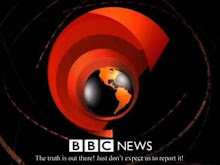

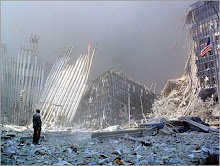
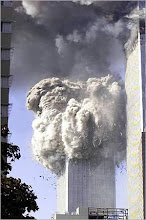
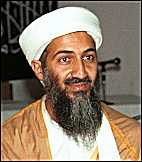
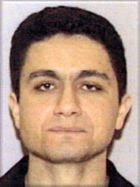

No comments:
Post a Comment